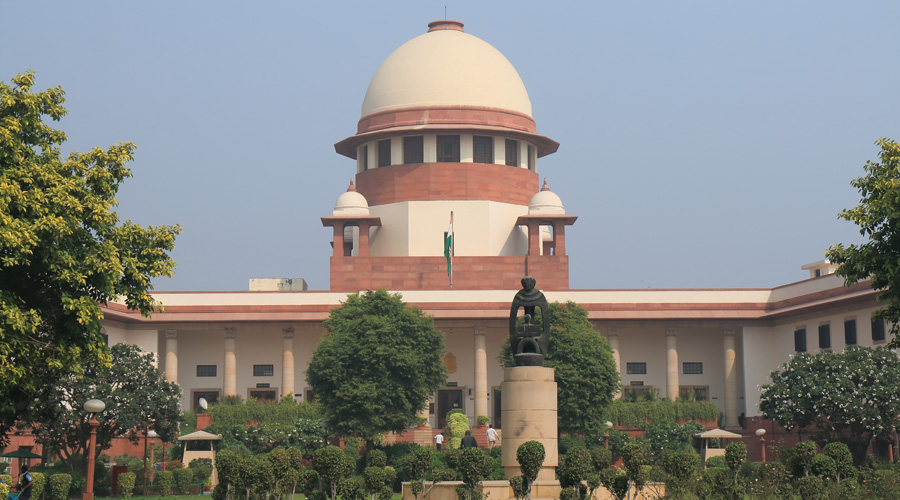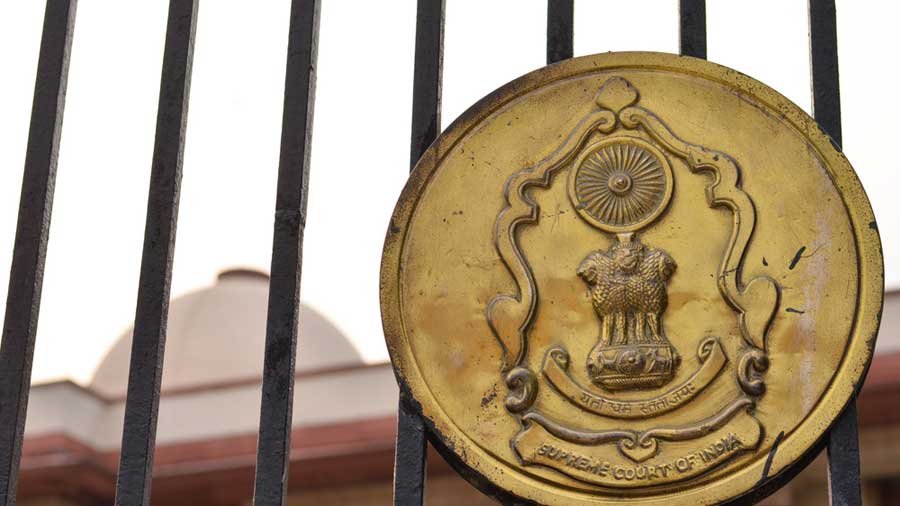The Supreme Court on Thursday told the country’s courts not to comment on the conduct or character of victims of alleged sexual violence, nor to condone or dilute such offences by mandating mediation or marriage or setting trivial bail conditions such as apologies, rakhi-tying or gifts.
The bench passed several directives, including one on gender sensitisation programmes for judges, public prosecutors and law students.
It deplored a Madhya Pradesh High Court order that had granted bail to a molestation accused after having him tie a rakhi on the alleged victim and give her Rs 11,000, her child Rs 5,000 and the family a box of sweets.
“Using rakhi-tying as a condition for bail transforms a molester into a brother by a judicial mandate. This is wholly unacceptable, and has the effect of diluting and eroding the offence of sexual harassment,” the bench of Justices A.M. Khanwilkar and S. Ravindra Bhat said.
It asked the courts to avoid reasoning or language that diminished the offence and trivialised the survivor’s grievance.
In this context, the bench said, the following claims would be irrelevant to the assessment of the gravity of the alleged offence and the rationale for granting bail:
⚫ Claims that the survivor had in the past consented to such or similar acts;
⚫ Claims that she had behaved promiscuously;
⚫ Claims that she had by her acts or clothing provoked the alleged action of the accused;
⚫ Claims that she had behaved in a manner unbecoming of a chaste “Indian” woman;
⚫ Claims that she had brought the situation upon herself by her behaviour.
The bail conditions imposed by the high court had prompted activist advocate Aparna Bhat and others to challenge the order before the apex court.
The high court order comes at a time Chief Justice of India S.A. Bobde has been enmeshed in controversy for asking a rape accused whether he would marry the alleged victim. Justice Bobde later alleged “misreporting”, saying he had only asked a question and not ordered the accused to marry the girl.
Writing Thursday’s apex court judgment, Justice Bhat said: “The act perpetrated on the survivor constitutes an offence in law, and is not a minor transgression that can be remedied by way of an apology, rendering community service, tying a rakhi or presenting a gift to the survivor, or even promising to marry her....”
The judgment forbade imposing conditions that it said implicitly condoned or diminished the harm caused by the accused and potentially exposed the alleged victim to secondary trauma, such as:
⚫ Requiring or permitting the accused to get in touch with the alleged victim;
⚫ Mandating mediation processes for non-compoundable offences (those where the law does not allow the two parties to enter into a compromise);
⚫ Suggesting or encouraging marriage between the alleged victim and the accused;
⚫ Mandating community service as part of the bail conditions;
⚫ Requiring one or more apologies from the accused.
“The law does not permit or countenance such conduct, where the survivor can potentially be traumatised many times over or be led into some kind of non-voluntary acceptance, or be compelled by the circumstances to accept and condone behaviour what is a serious offence,” Justice Bhat said.
The bench listed these dos and don’ts for courts hearing cases of gender crime:
⚫ The bail conditions should not mandate, require or permit contact between the accused and the alleged victim; they should seek to protect the alleged victim from any harassment by the accused;
⚫ If the court feels there’s a threat of harassment of the alleged victim, it should separately consider the nature of protection and pass an appropriate order in addition to directing the accused not to make any contact with the alleged victim;
⚫ Whenever bail is granted, the alleged victim should immediately be informed and given a copy of the bail order within two days;
⚫ The bail conditions and orders must not reflect stereotypical or patriarchal notions about women and their place in society, and must adhere to the requirements of the Code of Criminal Procedure.
Sensitivity
“Sensitivity should be displayed at all times by judges, who should ensure that there is no traumatisation of the prosecutrix during the proceedings or anything said during the arguments, and judges especially should not use any words, spoken or written, that would undermine or shake the confidence of the survivor in the fairness or impartiality of the court,” the judgment said.
It asked the National Judicial Academy to evolve a curriculum to conduct gender sensitisation programmes for judges, and directed the Bar Council of India to include in the all-India Bar exam a chapter on gender sensitisation.












